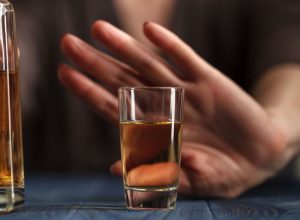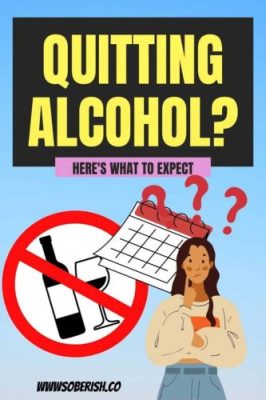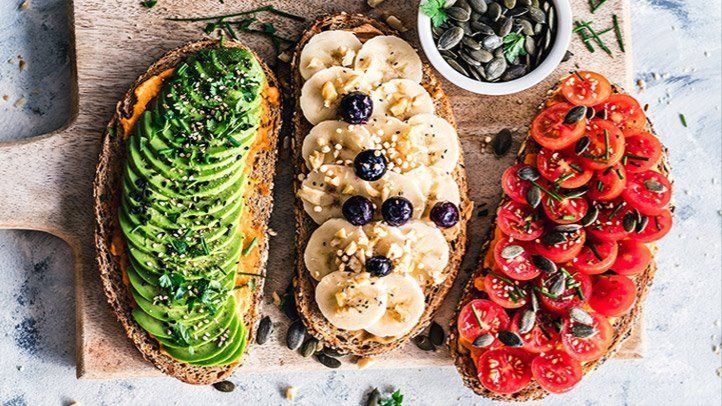When you decide to stop drinking, a myriad of changes awaits you – some expected, others not so much. From improved sleep and reduced anxiety to clearer skin, enhanced intimacy, and possibly stronger relationships. Recent research indicates that the societal, psychological, and physical benefits of quitting alcohol are continually growing. These encompass more balanced hormones, a strengthened immune system, and reduced risks of heart disease, liver issues, and cancer. Additionally, there’s the potential for increased self-awareness, confidence, and self-esteem. As a doctor I recently interviewed mentioned, quitting alcohol can lead to overall improvements in both your body and soul.
However, swapping that nightly glass of red wine for alcohol-free soda or non-alcoholic cocktails isn’t always as straightforward – even if you aren’t formally battling alcohol use disorder. This difficulty arises because alcohol is nearly ubiquitous; its consumption is deeply ingrained in our culture and social norms. It is the only socially accepted mind-altering beverage globally, served at gatherings, meals, and holidays – an integral part of everyday life for most people. Hence, whether it’s a brief respite in dry January or a more extended break, quitting often feels like it demands heroic discipline.

One way to make this transition easier is to have a clear understanding of when you can expect to experience all the benefits. Predicting what might happen in a day, a week, a month, and beyond can help you stay connected to positive changes and remind you to show yourself grace when temptations arise. The restoration of your body to its normal functions depends on various factors, including your gender, current health status, and willingness. Accept it, learn, and gain insight as you progress. After all, improvements in both body and soul don’t happen overnight.
In this light, here is an overview of what you can expect in the short term and long term when you stop drinking. Additionally, there are tips to help you succeed at every turn of your journey. Remember: if you feel overwhelmed or out of control due to alcohol abuse, seek professional medical support. You don’t have to face it alone, and abrupt cold turkey isn’t advisable.
One Day After Quitting
For many, the prospect of experiencing intense flu-like symptoms – nausea, headache, chills, sweating, restlessness, anxiety, gastrointestinal discomfort, and inflammation – might serve as a powerful motivation to quit or at least reduce drinking. Therefore, depending on your typical alcohol intake, the first day of respite might be a bit, well, rough. But the good news is that the sober 12 to 24 hours ahead are also the start of healing. Notably, as blood alcohol levels decrease, your hydration levels will increase – a crucial aspect of stopping without medical intervention.
Three Days Later
It’s not uncommon to encounter alcohol withdrawal symptoms and cravings in the initial days of quitting – insomnia and mild depression are also prevalent. This is when your body is most vulnerable, and many hopeful quitters succumb to temptation, using a bit of the “hair of the dog” to quell discomfort. If you can resist, the payoff is significant: you should start experiencing better sleep, increased energy, and improved digestion within 72 hours – along with enhanced skin clarity and energy levels due to improved hydration. The liver, responsible for metabolizing alcohol, will also commence resetting and repairing.
One to Two Weeks Later
By now, you should feel a noticeable difference – any improvements you’ve seen in your skin, energy, and sleep quality should only amplify. Your immune system should now discharge more effectively, potentially reducing the chances of diseases, inflammation, and infections. Withdrawal symptoms should also significantly diminish by this point, allowing you to enjoy enhanced mental clarity and sharpness.

One Month Later
Like a skier gaining speed downhill, the momentum and benefits truly begin to build after a month. Liver enzyme levels and blood pressure have returned to normal, lowering the risks of cirrhosis and heart disease. Cardiovascular levels have also improved, which may contribute to visible changes in weight and physique.
Three Months Later
You might suddenly notice that you’re viewing the world through a more optimistic lens: emotions and mental health have stabilized after three months, leading to a more positive outlook and happier moods. You may also feel more creative and motivated as any alcohol-induced brain damage or shrinkage should begin to repair. Sleep patterns should now be fully regulated, meaning you may bounce out of bed faster than ever before.
Six Months to One Year – or Longer
This is when most people truly start feeling like a whole new version of themselves in every aspect. From anxiety to depression to sexual function, everything should experience significant improvements – and it will only continue to benefit with ongoing body repairs. The risks of certain cancers, liver disease, and heart disease are markedly reduced. Moreover, as self-esteem and confidence increase, many report that their relationships and work become more fulfilling. It genuinely takes a year for your body to fully recover. It’s also when you might decide that there’s no turning back; realizing that quitting alcohol is not just possible but the best choice you can make.
Long-Term Commitment
When it comes to staying on the wagon, continuing to set clear goals and seeking support is helpful – whether through professional therapists, medical advisors, family, friends, or organized groups. “Share your intentions with friends and family who can provide encouragement. And don’t overlook the basics of self-care. Nutrition and hydration are your friends. Choose healthy foods and beverages, and remember to engage in physical exercise – even just a walk nearby. These things can genuinely help you stay focused, avoid potential triggers, both crucial factors for long-term success. Know this: the power to quit alcohol is in your hands, and while it’s a daily commitment, it is possible – and it’s fantastic.”



